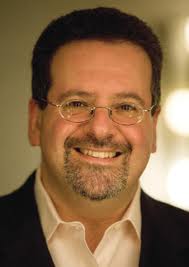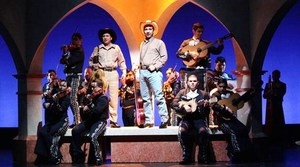As we all know, perception is reality. I don’t really think museums, as a class, are elitist institutions. A few may be, but not most. But I think some people have been saying it for so long that many others believe it without a second thought, or first-hand knowledge. A friend of mine once overheard an adult leading a group of schoolchildren toward the Metropolitan Museum, telling them “isn’t it big and a bit scary?” And then something along the lines of “rich people go there.”
 Opera companies are in the same position, only worse — they do charge upwards of $100 a ticket, sometimes way upwards of $100 a ticket. Yes, I know about subsidized tickets, but only so many people can get them, and the way they are sometimes distributed leaves out people who work and can’t stand in line.
Opera companies are in the same position, only worse — they do charge upwards of $100 a ticket, sometimes way upwards of $100 a ticket. Yes, I know about subsidized tickets, but only so many people can get them, and the way they are sometimes distributed leaves out people who work and can’t stand in line.
But I am off point, which is about an initiative by the Houston Grand Opera called HGOco. It was started by Anthony Freud (at right), the British-born general director who took over there in 2006 (surprising everyone who said it’s really tough to follow a local legend, in this case David Gockley, who now runs the San Francisco Opera).
Let’s start with a big number: 600,000. That’s the number of people Freud says he has reached over the last three years with HGOco, whose most innovative initiative is called “Song of Houston.” It has so far resulted in three new operas, written in a collaboration, sort of, with Houston’s ethnic communities. (There’s a taste of “To Cross the Face of the Moon/Cruzar la Cara de la Luna,” a bilingual mariachi opera, below.)
Freud laid out his management philosophy several ways in the course of my recent interview with him, saying:
- Every opera is a cultural services company.
- Opera in general, the art form, is strong, but we have to be prepared to think laterally and radically.
- We can’t exist in a hermetically sealed bubble. We have to break down barriers and engage people on their own terms, not ours.
- HGOco is a lab and a playground, an initiative to reach a very large number of people who may not normally get involved with an opera company.
 There is much to be admired about those statements, and some that troubles me as well. For a start, he seems to sketch things in an us vs. them way. And the three new operas, so far, have not been fully produced on the main stage; rather, they’ve been performed in concert version or in community centers and other venues — which to me seems like a two-tier system: grand opera for the grand folks; something less for all others.
There is much to be admired about those statements, and some that troubles me as well. For a start, he seems to sketch things in an us vs. them way. And the three new operas, so far, have not been fully produced on the main stage; rather, they’ve been performed in concert version or in community centers and other venues — which to me seems like a two-tier system: grand opera for the grand folks; something less for all others.
Freud disagrees, saying only a company like Houston could have produced the new works, and, “It’s not a matter of either/or, It’s both. We can do more than mainstage opera.”
Ok, I agree with that last part. I also agree with this statement: “I don’t believe in a generic approach to a generic opera company, but what we’re doing here should have relevance in every U.S. city.”
The same feeling applies to museums and other arts institutions, too. No cookie-cutter approach works, not really.
You can read my Cultural Conversation with Freud, “Opera That Bridges the Divide,” in tomorrow’s Wall Street Journal.
Photo Credits: Courtesy of Houston Grand Opera
